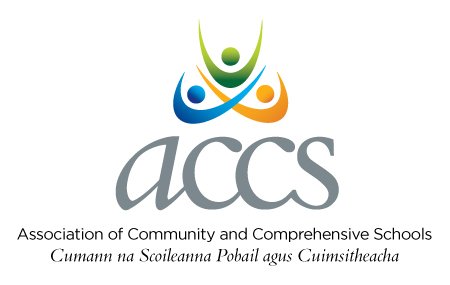ACCS/info Bulletin 38/19
Mon, Sep 16th, 2019
The Secretary,
Board of Management and
School Principal in
each Community and Comprehensive School.
Members of the Executive of ACCS.
ACCS/Info Bulletin 38/19
Re: Junior Cycle Changes Circular Letter 0055/2019
Circular Letter 0055/2019 supersedes Circulars 0079/2018 and 0015/2017 and sets out the arrangements now governing the implementation of the Framework for Junior Cycle 2015, with particular reference to the school year 2019/20. The following bulletin summarises the main changes in Junior Cycle for schools for the school year 2019/20.
September 2019 marks the final phase of the introduction of new subject specifications to schools. Students entering first year in September 2019 will study new specifications in all subjects. The implementation of the Framework for Junior Cycle continues to be reviewed, in partnership with school leaders, teachers and other education partners.
The following new subject specifications will be introduced for those students entering first year in September 2019: Applied Technology, Engineering, Wood Technology, Graphics, Religious Education, Jewish Studies and Classics.
Change to the number of short courses a student may undertake: Wellbeing (3) + 4 others.
Key dates for Classroom-Based Assessments (CBAs) in the school year 2019 – 2020. The time-bands during which the CBAs, Subject Learning and Assessment Review (SLAR) meetings and Assessment Tasks (where relevant) in the different Junior Cycle subjects take place in the school year 2019/20 were published by the NCCA in May 2019, a link to which can be found at Appendix 1. The SEC will be arranging to have the materials required for the conduct of the Assessment Tasks in all subjects available in schools in time for the commencement of the Assessment Task window on 6th January 2020.
The Junior Certificate examination in Civic, Social and Political Education (CSPE) is no longer available but CSPE remains a key component of the area of learning entitled Wellbeing. Reporting on Wellbeing.
The area of learning, Wellbeing, will be reported on for the first time in 2020.
The curriculum and assessment arrangements for Junior Cycle are as set out in the Framework for Junior Cycle 2015 and in the related specifications and syllabuses developed by the NCCA and approved by the Minister. Each school should use the Framework to plan a programme for each of the three years of Junior Cycle that meets the requirements set out in this circular, is informed by the particular learning needs and interests of students and reflects the characteristic spirit of the school.
The programme planned for students entering Junior Cycle should be available for students and parents/guardians before the end of the school year prior to the student attending the school, i.e. by May 2020 for students commencing first year in the academic year 2020/2021.
Students outside of a school setting
Where a student wishes to undertake a subject outside of the recognised school setting, the school should inform parents and students at the earliest opportunity that:
Students who choose to study a subject outside of their school cannot complete the requirements for the Classroom Based Assessment (CBA) and Assessment Task;
Subjects undertaken outside of a school setting count as part of the maximum of 10 subjects for certification.
It is the responsibility of the school authority to ensure that the Department’s Post-Primary Online Database (PPOD) reflects accurately the subjects each student is studying – both examination and non-examination subjects, including subjects undertaken outside of a school setting. PPOD is used to provide the State Examinations Commission (SEC) with details of students and their subjects for examination purposes. Having accurate and complete data on PPOD is essential so that students are provided with the materials they require for their Assessment Tasks, practical and performance tests and final examinations.
Study of subjects outside of a recognised school setting (even where the student is sitting less than ten subjects) cannot satisfy the requirements for Classroom-Based Assessments by recognised schools and CBAs cannot, therefore, be reported on as part of the JCPA in such cases. Where students cannot complete the CBAs and Assessment Task within a recognised school setting (or recognised centre for further education), the CBAs will display as “not reported” on the JCPA and the Assessment Task will not be assessed by the State Examinations Commission.
JCPAs will not be awarded in respect of students who have elected to be home schooled, as the JCPA is designed as a school-based award. The State Examinations Commission (SEC) can provide these students with a statement of the results of their final examinations.
It is important to note that the maximum number of 10 subjects allowed for examination and certification by the SEC may not be exceeded, regardless of whether subjects are being studied as extra subjects outside of a school setting.
SLAR meetings
Discussions are ongoing between the parties to the Junior Cycle Implementation Committee (DES, ASTI, TUI) with a view to clarifying issues surrounding the implementation of SLAR meetings. Further guidance on this matter will issue in due course.
JCPA Administration Grant
Following changes made to the data entry requirements in schools in relation to JCPA production, the JCPA administration grant has been discontinued.
Whole-School Planning and School Self-Evaluation
Approval continues for schools to close, for a day of whole-school planning and self-evaluation for Junior Cycle implementation for each year of implementation up to the school year 2021/22. The purpose of this day will change over time, but in 2019/20 it may be used by schools to support the embedding and/or continued development of the underlying Junior Cycle Framework on a whole-school basis. This may involve schools reviewing their current policies and practices, as well as planning and monitoring for the changes being introduced under the Framework for Junior Cycle 2015. JCT will continue to be available to assist schools in planning for and implementing this whole-school day and will liaise with schools directly on this matter.
Is mise,
le mór mheas,
_________________
John Irwin,
General Secretary ACCS.
